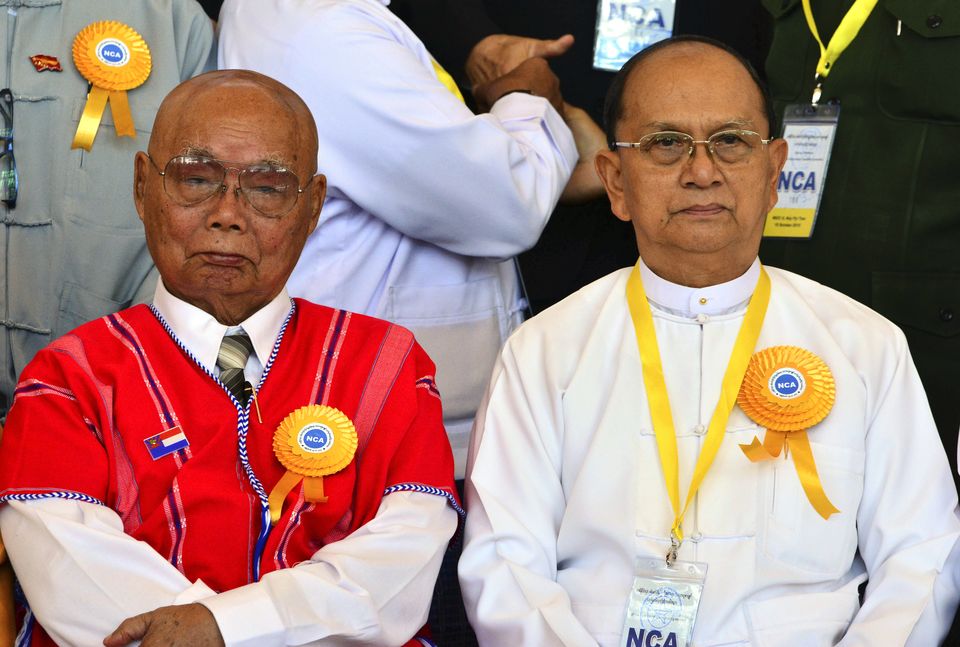Myanmar inks peace pact with ethnic rebels in India’s presence
Myanmar’s government and eight armed ethnic groups signed a ceasefire agreement on Thursday, the culmination of more than two years of negotiations aimed at bringing an end to the majority of the country’s long-running conflicts.
“As a friendly geographical, historical and cultural neighbour of Myanmar, we were glad to make a small contribution to the best prospects of peace in Myanmar”.
Gen. Mutu Say Poe, the chairman of the Karen National Union (KNU), said signatories would encourage those ethnic armed groups abstaining from the signing for the moment to be a part of the process going forward, while also insisting that “the Tatmadaw [Burma Army] should not use force in bringing them into the process”. “The signing ceremony was attended by very few…as worldwide witnesses”, he said.
Burma’s government has signed a cease-fire agreement with eight ethnic rebel armies but the more powerful groups have refused to come on board.
Prime Minister Narendra Modi’s special envoy for northeast R N Ravi and former Mizoram chief minister Zoramthanga were also present on the occasion.
The president had hoped to secure a nationwide peace deal encompassing all of Myanmar’s rebel groups.
Thein Sein said he would continue with efforts to convince other groups to join the ceasefire later.
“The National Cease-Fire Agreement is a historic gift from us to the generations of the future”, Thein Sein said.
Authorities had cited widespread flooding for a proposed postponement, but quickly dropped the idea which was vehemently rejected by Aung San Suu Kyi’s opposition party. She did not attend the ceasefire ceremony in person, but insists any government led by her National League for Democracy is committed to peace.
“We did not sign as a witness because it is questionable with regard to the term ‘nationwide pact, ‘ as now only eight groups signed”, Win Htein told The Irrawaddy.
Delhi, which has asked Myanmar to hand over S S Khaplang and three of his commanders to stand trial in India for killing its soldiers, was upset when representatives of the Burmese Naga rebel leader were called to a meeting with Myanmar peace negotiators in September.
New Delhi had retaliated by striking two insurgent camps across the border in Myanmar, killing seven insurgents. The removals could be a crucial step to the groups joining the political mainstream.
Among those that will be signing is the Karen National Union (KNU), Myanmar’s oldest armed group.
From the point of view of Generational Dynamics, this situation with multiple peace agreements is a complex example of something that I have discussed a number of times before with respect to other countries.








